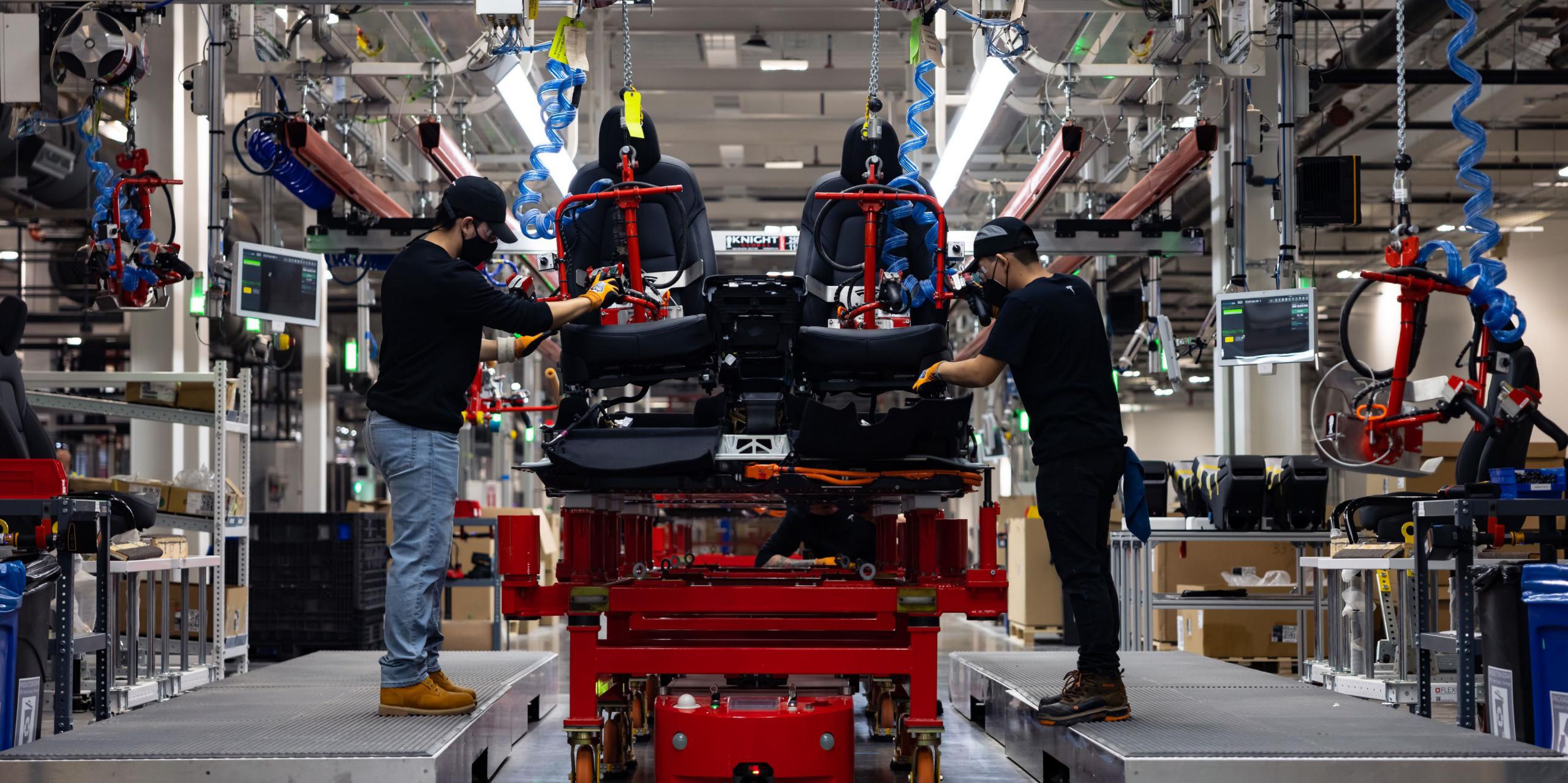
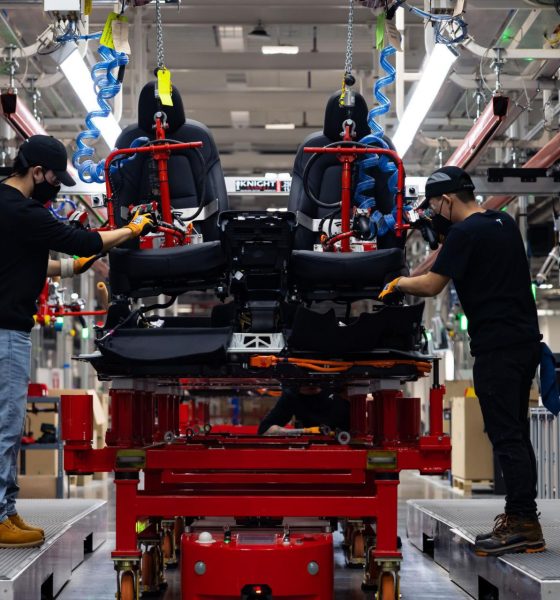
News
Tesla’s years of battery tech investments are becoming a buffer against nickel’s rising costs
For years, Tesla has invested heavily in its supply chain and battery strategy. So focused was the company in these endeavors that it even decided to design and produce its own batteries, the 4680 cells. The next-generation cells are a crucial component of Tesla’s long-term plan to make electric vehicles more affordable.
Elon Musk has been very open about Tesla’s need for nickel. Being a key component of its high-performance batteries, Musk stated back in 2020 that any company that can provide Tesla with environmentally-friendly nickel would be granted with a massive contract. During Battery Day, the CEO also highlighted that Tesla’s nickel-based 4680 batteries would be the heart of the company’s flagship products, like the Cybertruck.
But while nickel is a critical ingredient of lithium-ion batteries, experts have predicted an upcoming shortage for some time. Norway-based energy analytics firm Rystad Energy estimated that demand would surpass nickel supply around 2024, and by 2026, there might be a shortage of the material. This timeframe seems to have been accelerated by Russia’s invasion of Ukraine.
It should be noted that Russia controls 20% of the supply of the industry’s highest-grade nickel. The country also holds 10% of the world’s overall nickel supply. Thus, when Russia was hit by sanctions due to its invasion of Ukraine, the markets reacted. Nickel prices rose so much that the London Metal Exchange canceled trading for the material for more than a week. In a statement to Insider, auto industry analyst Lauren Fix noted that Russia’s control of nickel could have adverse effects for electric vehicle makers.
“Relying on your enemies to supply you with critical materials is never to your benefit. They have the ability to control the price you pay and can make it more difficult for you to gain supply to meet your goals,” Fix said.
Tesla is the market’s dominant electric vehicle maker, and for good reason. For years, the company has initiated plans to be as immune as possible from market shifts. Tesla built up a nickel supply practically independent of many market shifts by tapping into partnerships with nickel-mining companies and nickel production entities. The company even bought into a nickel mine in early 2021, providing itself with direct access to the material.
Tesla has also worked heavily in its battery technology, from the 2170 cells currently being made in Gigafactory Nevada with Panasonic to the 4680 cells that are currently being ramped in the company’s Kato Road facility. Tesla’s 4680 batteries were announced as nickel-based cells, though they feature a number of efficiencies that make their production more cost-effective and their life cycle longer compared to traditional batteries.
Interestingly enough, Tesla is not keeping its 4680 battery technology all for itself. In a previous announcement, Panasonic has confirmed that it would also be producing 4680 batteries, and they have already been validated by the electric vehicle maker. Panasonic has noted that mass production of the next-generation cells would begin around 2024.
Tesla also managed to handle the rising cost of nickel by using batteries that do not use the material at all. As per CEO Elon Musk, Tesla has started focusing on using iron-based batteries for its entry-level vehicles like the Model 3 RWD and the Model Y RWD, both of which are produced in Gigafactory Shanghai. The company has also mentioned that it had begun using manganese for some of its batteries to help reduce its reliance on nickel. Lastly, Tesla also launched a recycling program for its nickel-based batteries, which should help the company’s supply chain further in the future.
Tesla is still affected by shifts in the market. The fact that the company has raised its vehicle prices twice in recent weeks is proof of that. However, a number of experts have stated that Tesla’s forward-looking strategy still makes the company well-positioned to continue in its role as the undisputed leader in the electric vehicle industry. Tien Wong, a tech investor and the founder of Connectpreneur, shared his thoughts on the matter.
“Prewar, nickel prices, and potential shortages were a huge concern of Elon’s and the EV industry as a whole. The war will exacerbate these dynamics, which will result in higher prices and slower deliveries for EVs. As for Tesla, they are the market leader right now, so the nickel situation may actually help them versus competitors in the short run,” Wong said.
*Quotes courtesy of Insider.
Don’t hesitate to contact us with news tips. Just send a message to simon@teslarati.com to give us a heads up.

Cybertruck
Tesla updates Cybertruck owners about key Powershare feature
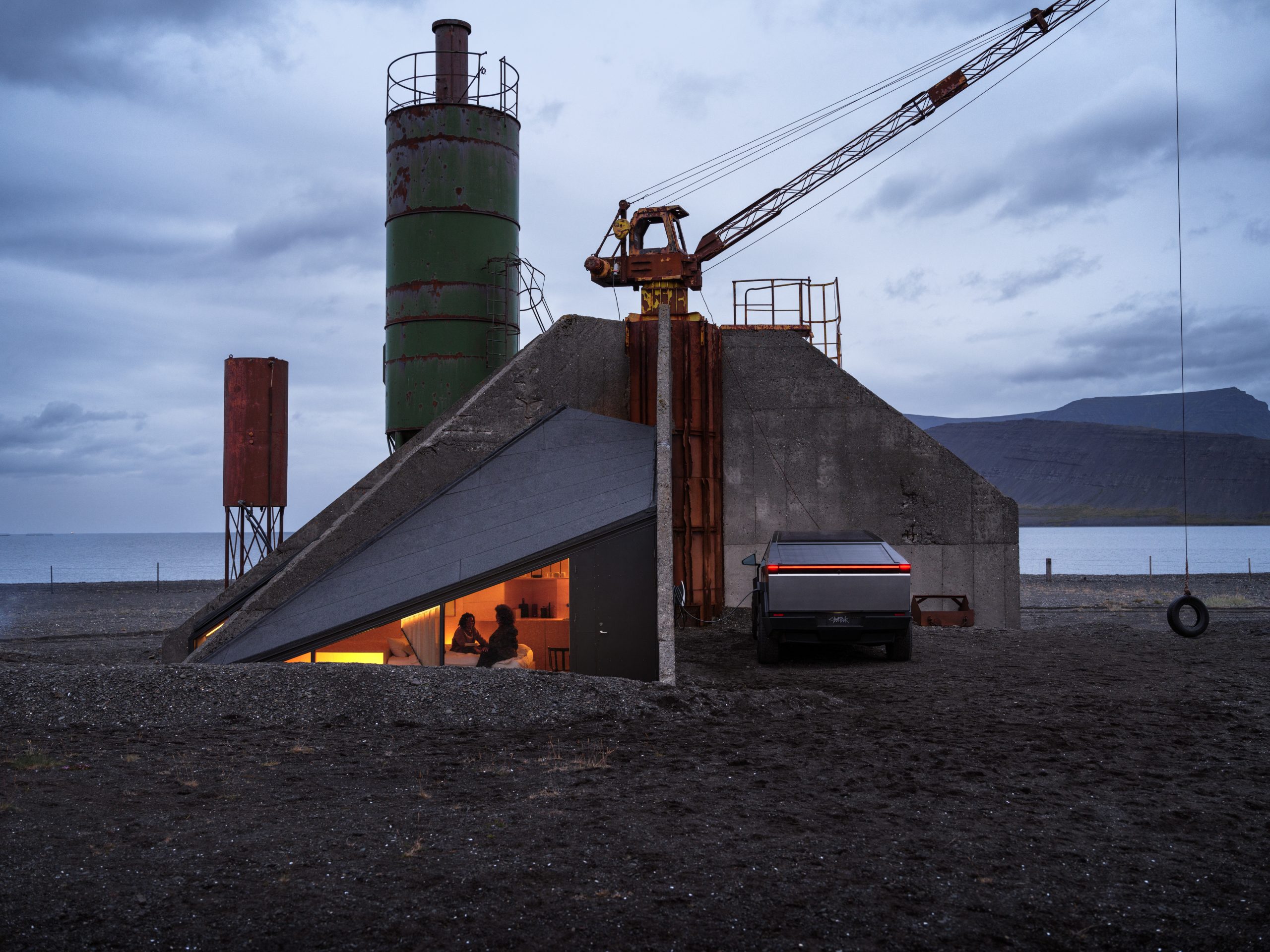
Tesla is updating Cybertruck owners on its timeline of a massive feature that has yet to ship: Powershare with Powerwall.
Powershare is a bidirectional charging feature exclusive to Cybertruck, which allows the vehicle’s battery to act as a portable power source for homes, appliances, tools, other EVs, and more. It was announced in late 2023 as part of Tesla’s push into vehicle-to-everything energy sharing, and acting as a giant portable charger is the main advantage, as it can provide backup power during outages.
Cybertruck’s Powershare system supports both vehicle-to-load (V2L) and vehicle-to-home (V2H), making it flexible and well-rounded for a variety of applications.
However, even though the feature was promised with Cybertruck, it has yet to be shipped to vehicles. Tesla communicated with owners through email recently regarding Powershare with Powerwall, which essentially has the pickup act as an extended battery.
Powerwall discharge would be prioritized before tapping into the truck’s larger pack.
However, Tesla is still working on getting the feature out to owners, an email said:
“We’re writing to let you know that the Powershare with Powerwall feature is still in development and is now scheduled for release in mid-2026.
This new release date gives us additional time to design and test this feature, ensuring its ability to communicate and optimize energy sharing between your vehicle and many configurations and generations of Powerwall. We are also using this time to develop additional Powershare features that will help us continue to accelerate the world’s transition to sustainable energy.”
Owners have expressed some real disappointment in Tesla’s continuous delays in releasing the feature, as it was expected to be released by late 2024, but now has been pushed back several times to mid-2026, according to the email.
Foundation Series Cybertruck buyers paid extra, expecting the feature to be rolled out with their vehicle upon pickup.
Cybertruck’s Lead Engineer, Wes Morrill, even commented on the holdup:
As a Cybertruck owner who also has Powerwall, I empathize with the disappointed comments.
To their credit, the team has delivered powershare functionality to Cybertruck customers who otherwise have no backup with development of the powershare gateway. As well as those with solar…
— Wes (@wmorrill3) December 12, 2025
He said that “it turned out to be much harder than anticipated to make powershare work seamlessly with existing Powerwalls through existing wall connectors. Two grid-forming devices need to negotiate who will form and who will follow, depending on the state of charge of each, and they need to do this without a network and through multiple generations of hardware, and test and validate this process through rigorous certifications to ensure grid safety.”
It’s nice to see the transparency, but it is justified for some Cybertruck owners to feel like they’ve been bait-and-switched.
News
Tesla’s northernmost Supercharger in North America opens
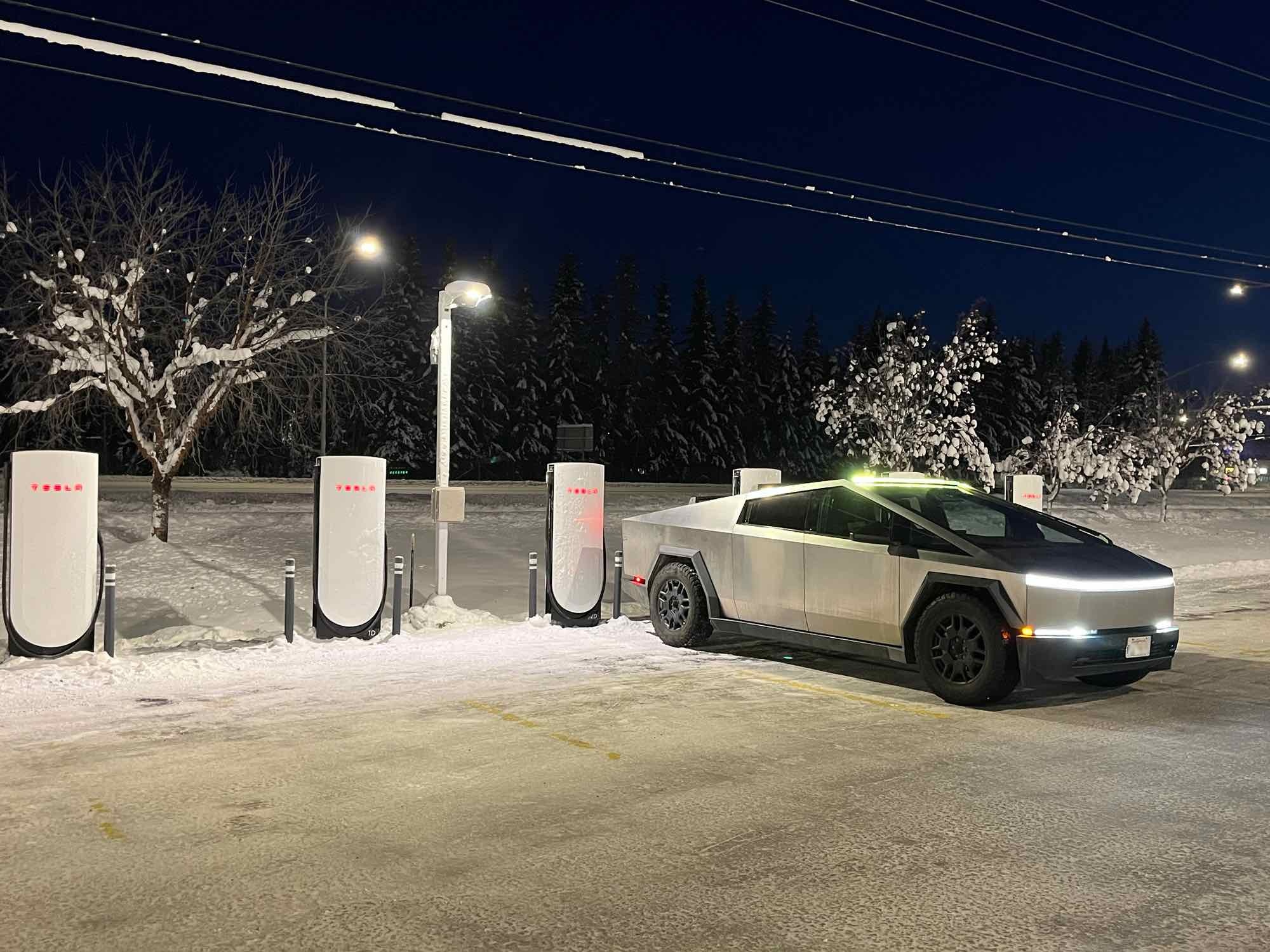
Tesla has opened its northernmost Supercharger in Fairbanks, Alaska, with eight V4 stalls located in one of the most frigid cities in the U.S.
Located just 196 miles from the Arctic Circle, Fairbanks’s average temperature for the week was around -12 degrees Fahrenheit. However, there are plenty of Tesla owners in Alaska who have been waiting for more charging options out in public.
There are only 36 total Supercharger stalls in Alaska, despite being the largest state in the U.S.
Eight Superchargers were added to Fairbanks, which will eventually be a 48-stall station. Tesla announced its activation today:
North America’s northernmost Supercharger Fairbanks, AK (8 stalls) opened to public. https://t.co/M4l04DZ6B5 pic.twitter.com/zyL6bDuA93
— Tesla Charging (@TeslaCharging) December 12, 2025
The base price per kWh is $0.43 at the Fairbanks Supercharger. Thanks to its V4 capabilities, it can charge at speeds up to 325 kW.
Despite being the northernmost Supercharger in North America, it is not even in the Top 5 northernmost Superchargers globally, because Alaska is south of Norway. The northernmost Supercharger is in Honningsvåg, Norway. All of the Top 5 are in the Scandanavian country.
Tesla’s Supercharger expansion in 2025 has been impressive, and although it experienced some early-quarter slowdowns due to V3-to-V4 hardware transitions, it has been the company’s strongest year for deployments.
🚨🚨 Tesla Supercharging had a HUGE year, and they deserve to be recognized.
🍔 Opened Tesla Diner, a drive-in movie theater with awesome, Chef-curated cuisine
🔌 Gave access to Superchargers to several EV makers, including Hyundai, Genesis, Mercedes-Benz, Kia, Lucid, Toyota,… pic.twitter.com/yYT2QEbqoW
— TESLARATI (@Teslarati) December 10, 2025
Through the three quarters of 2025, the company has added 7,753 stations and 73,817 stalls across the world, a 16 percent increase in stations and an 18 percent increase in stalls compared to last year.
Tesla is on track to add over 12,000 stalls for the full year, achieving an average of one new stall every hour, an impressive statistic.
Recently, the company wrapped up construction at its Supercharger Oasis in Lost Hills, California, a 168-stall Supercharger that Tesla Solar Panels completely power. It is the largest Supercharger in the world.
News
Tesla shocks with latest Robotaxi testing move
Why Tesla has chosen to use a couple of Model S units must have a reason; the company is calculated in its engineering and data collection efforts, so this is definitely more than “we just felt like giving our drivers a change of scenery.”
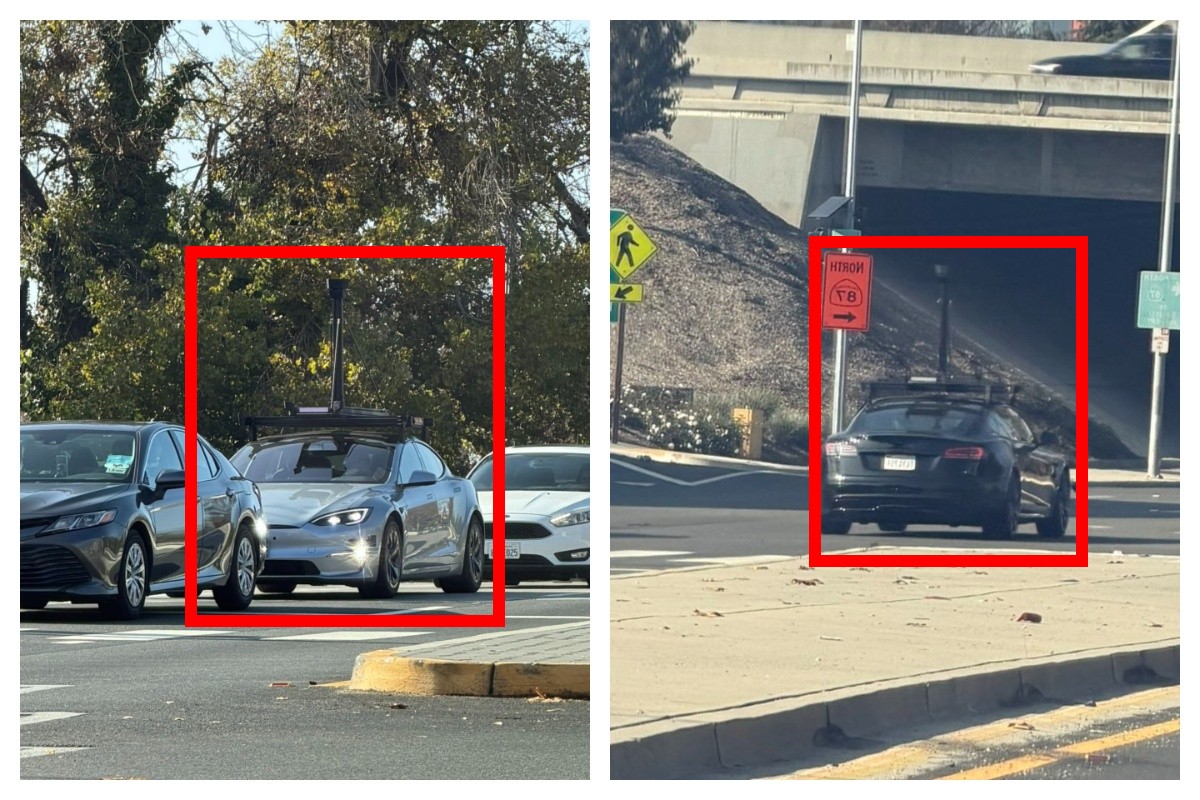
Tesla Model S vehicles were spotted performing validation testing with LiDAR rigs in California today, a pretty big switch-up compared to what we are used to seeing on the roads.
Tesla utilizes the Model Y crossover for its Robotaxi fleet. It is adequately sized, the most popular vehicle in its lineup, and is suitable for a wide variety of applications. It provides enough luxury for a single rider, but enough room for several passengers, if needed.
However, the testing has seemingly expanded to one of Tesla’s premium flagship offerings, as the Model S was spotted with the validation equipment that is seen entirely with Model Y vehicles. We have written several articles on Robotaxi testing mules being spotted across the United States, but this is a first:
🚨 Tesla is using Model S vehicles fitted with LiDAR rigs to validate FSD and Robotaxi, differing from the Model Ys that it uses typically
Those Model Y vehicles have been on the East Coast for some time. These Model S cars were spotted in California https://t.co/CN9Bw5Wma8 pic.twitter.com/UE55hx5mdd
— TESLARATI (@Teslarati) December 11, 2025
Why Tesla has chosen to use a couple of Model S units must have a reason; the company is calculated in its engineering and data collection efforts, so this is definitely more than “we just felt like giving our drivers a change of scenery.”
It seems to hint that Tesla could add a premium, more luxury offering to its Robotaxi platform eventually. Think about it: Uber has Uber Black, Lyft has Lyft Black. These vehicles and services are associated with a more premium cost as they combine luxury models with more catered transportation options.
Tesla could be testing the waters here, and it could be thinking of adding the Model S to its fleet of ride-hailing vehicles.
Reluctant to remove the Model S from its production plans completely despite its low volume contributions to the overall mission of transitioning the world to sustainable energy, the flagship sedan has always meant something. CEO Elon Musk referred to it, along with its sibling Model X, as continuing on production lines due to “sentimental reasons.”
However, its purpose might have been expanded to justify keeping it around, and why not? It is a cozy, premium offering, and it would be great for those who want a little more luxury and are willing to pay a few extra dollars.
Of course, none of this is even close to confirmed. However, it is reasonable to speculate that the Model S could be a potential addition to the Robotaxi fleet. It’s capable of all the same things the Model Y is, but with more luxuriousness, and it could be the perfect addition to the futuristic fleet.








